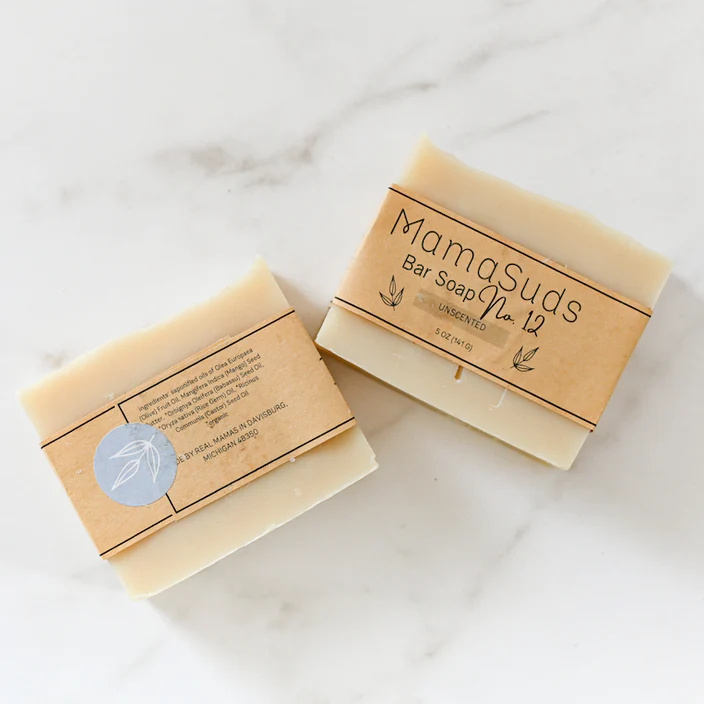
Eco-Friendly Soap Ingredients: What Makes Them Better?
In a world where every drop counts, the little choices we make can have a big impact. Whether you’re looking to live a more sustainable life, or you simply care about the planet, the soap you use in your daily cleansing ritual is a pivotal part of the eco-equation. But what really distinguishes eco-friendly soap from the rest? And why should you pay attention to its ingredients?
The Sudsy Truth About Eco-Friendly Soap
Bubbles might be fun, but not all soaps are created equal. Eco-friendly soaps, also known as natural soaps, have shifted the spotlight away from chemical-laden solutions towards more holistic, environmentally sensitive approaches. These soaps are typically crafted with ingredients that are renewable, biodegradable, and sourced responsibly. But what exactly are these ingredients, and what makes them better for you and the Earth?
The Harmful Harbingers: What to Watch Out For

Before we unveil the ingredients that define eco-friendly soaps, it's essential to understand why they’re necessary. Conventional soaps often contain a laundry list of culprits that are detrimental to the environment. Ingredients like parabens, phthalates, and triclosan can not only linger in water systems, harming aquatic life, but they may also disrupt marine ecosystems. The truth is, the suds we wash down our drains can have far-reaching consequences.
Eco-Allies in Action: Essential Ingredients for a Greener Clean

Now, on to the good stuff. Eco-friendly soaps boast a range of ingredients that can be described as the A-team of sustainable living. At the heart of these soaps are vegetable oils, like coconut, olive, and palm oil. They form the foundational fats that make soap possible, offering natural cleansing properties and a creamy lather, without the need for synthetic substitutes.
To further fortify the eco-friendly front, many natural soaps contain essential oils for fragrance and added benefits. Think soothing lavender, refreshing peppermint, or gentle chamomile. These oils serve dual purposes, aromatically and functionally, often bringing their antibacterial, antifungal, or antiseptic qualities to the mix.
But the real eco-friendly stars here are the specialty ingredients that shore up the soap’s effectiveness and environmental safety. These include:
Castile Soap
Derived from vegetable oils, particularly olive oil, castile soap has been a beloved eco-cleaning staple for centuries. It’s gentle on the skin and tough on grime, with a reputation for biodegradability and zero animal testing.
Sodium Hydroxide (Lye)
This critical component in the saponification process—the chemical reaction that makes oil into soap—is often misunderstood. When lye mixes with oils and water, it transforms into soap, with no residual lye remaining. When used responsibly, it’s a safe and natural way to create eco-friendly soap.
Aloe Vera
Known for its moisturizing and soothing properties, aloe vera is a superstar addition to any soap. It’s particularly useful in soaps that aim to be gentle on sensitive skin.
These ingredients, when combined, result in a soap that’s not only kind to the planet but also free from synthetic dyes, fragrances, and other additives that could be linked to health concerns.
The Ripple Effect of Eco-Friendly Choices
Using eco-friendly soap isn’t just about feeling good in the shower; it’s a small action that can lead to significant environmental benefits. When you choose a natural soap, you’re choosing more than just a cleaner body; you’re choosing a cleaner world.
Conserving Resources
The very nature of eco-friendly soaps—biodegradable ingredients and sustainable sourcing—means they have a gentler footprint. They put conservation into practice by reducing the strain on water systems and promoting the responsible use of resources.
Wildlife and Ecosystem Protection
The tide of chemicals from our personal care products can take its toll on wildlife. By opting for natural alternatives, you're playing your part in preserving the delicate balance of the environment, from wildlife to plants.
Support Ethical Sourcing and Production
The shift to eco-friendly soaps supports companies committed to ethical practices, such as fair trade and conservation. By extension, every bar of sustainable soap purchased is a vote for a system that respects people and the planet.
How to Spot Eco-Friendly Soap
Telling eco-friendly soap apart from its traditional counterparts isn’t always straightforward. But a little label reading can go a long way. Keep an eye out for soaps labeled "organic," "biodegradable," or "all-natural." These indicators often mean the product inside is formulated with the environment in mind.
Eco-friendly brands also tend to be transparent about their ingredient lists, and they’re often eager to share their sustainable practices and certifications. Look for soaps that proudly display their use of non-GMO ingredients, cruelty-free testing, and eco-packaging. And don’t forget to read reviews from trusted eco-conscious sources!
Making the Switch to an Eco-Friendly Regimen
If you’re considering making the switch to eco-friendly soap, you’re in good company. It's a simple change that can align your daily routine with more sustainable values. Start by doing a bit of research to find a brand that resonates with your ethos and your skin's needs. Remember, the goal is to find a soap that not only cleanses effectively but also makes you feel good inside and out.
Making the transition may also involve a bit of trial and error as you find the right eco-soap for you. The textures and scents might be different from what you’re used to, but the peace of mind that comes from washing with a product that’s not harming the environment is priceless.
The Lather on Luxury: Eco-Friendly Soap for Every Lifestyle
With the surge in eco-awareness, the market for natural soaps has expanded to meet a range of consumer preferences. Whether you're into bar soaps, liquid soaps, or even foaming hand washes, there’s an eco-conscious option to suit every need.
Some brands have also begun to innovate, creating eco-friendly soaps with additional features, like exfoliating properties, hair care benefits, or even shaving support. The possibilities seem to expand every day, making it easier than ever to enjoy a lather that’s both lavish and kind to the planet.
The Next Bubbling Frontier: DIY Eco-Friendly Soap
For the intrepid environmentalist, the ultimate step is crafting your own eco-friendly soap. With a few key ingredients and some elbow grease, you can tailor your soap to your exact specifications, all while controlling the environmental impact of your cleansing regimen.
DIY soap-making kits and classes are available for those interested in the craft, and the satisfaction of a self-made product that's good for you and the Earth is hard to beat. Just be sure to follow the instructions and safety guidelines closely, especially when working with lye.
Our choices at the sink and shower are part of a larger narrative. They contribute to the story of how we coexist with nature—and they hold the power to drive change. By choosing eco-friendly soap, you’re not only showing love to your skin and the environment, but you’re part of a collective movement toward a cleaner, healthier planet.
The transition to an eco-friendly soap might seem like a tiny pivot in the grand scheme, but it’s part of a mosaic of shifts that are redefining the way we interact with the world. And as each day flows into the next, the sum of these conscious choices could just make the difference we all need.
The suds are in your hands. What story will your soap tell?





Leave a comment